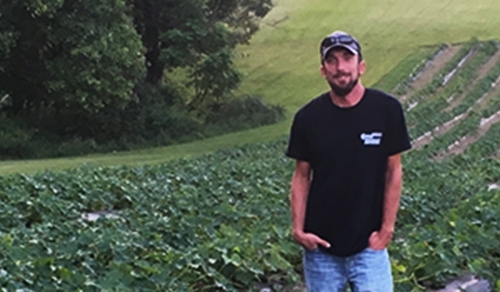An Interview with Kathlyn Terry, Executive Director of Appalachian Sustainable Development (ASD)
Talk to us about your organization and community:
Appalachian Sustainable Development’s (ASD’s) mission is to transition Appalachia to a more resilient economy and a healthier population by supporting local agriculture, exploring new economic opportunities, and connecting people to healthy food. Our vision is to improve the health of all segments of the regional population and to make sustainable agriculture and land use driving forces in the regional economy. We focus on areas that are rural, remote, and underserved, using food and agriculture as a means of moving people out of poverty and improving their health simultaneously. ASD initially focused exclusively on 15 counties in Northeast Tennessee and Southwest Virginia, however in the past 22 years, our work has expanded to include eastern West Virginia, Kentucky, and Southeast Ohio. Our strategies involve meeting people where they are and moving them along a continuum towards self-sufficiency. Fundamental to all of our programs is a strong belief in increasing impact through collaborations and partnering.
How is ASD working to help your region make a just transition away from coal toward a new economy?
ASD and its partners in Central Appalachia (e.g. ACEnet and Unlimited Future .) are working together to provide access to large wholesale markets for Central Appalachians in Southwest Virginia, Northeast Tennessee, eastern Kentucky, West Virginia and Southeast Ohio. ASD is well positioned to lead this effort because of its long history operating Appalachian Harvest, a food hub that was started in 2000 and serves large grocery store chain markets. In 2016, this food hub generated over $2.1 million in revenue and has yet to come close to meeting demand for whole produce. This demonstrates a tremendous opportunity for Central Appalachians. The Corridor project ASD and its partners are implementing is designed to create a distribution corridor that provides access to large east coast wholesale markets for farmers and food entrepreneurs who have not been able to reach these markets cost effectively. Along with these services we are building the capacity of farmers, nonprofits, and support services by sharing tools, training curriculum and processes with a host of new partners and farmers to position everyone for success in these new markets.
Since starting this work, what is an example success story of what ASD has been able to accomplish?
Jeremy Hyre, Hickory Ridge Farm – Independence, West Virginia: As the Operations Manager for the Preston County Workshop Inc., a non-profit rehabilitation facility that employs people with and without disabilities, Jeremy is always looking for new meaningful work opportunities to help his employees become successful members of the community. After hearing about the Corridor project, Jeremy founded Hickory Ridge Farm to create an opportunity for his employees to engage in wholesale farming. As a first- year farmer, the corridor project offered Jeremy and his employees the training, support and resources they needed to grow hard squash for wholesale markets and expand their non-profit business. A total of 20 workshop employees were trained to work on the farm and at the workshop planting, harvesting, storing, grading and packaging hard squash. Harnessing their newfound skill set, workshop employees were also able to offer storage, grading, and packaging services to other area farmers, enabling them to scale up their farm businesses, too. By modifying a wooden bin that the Workshop was already creating for coal companies, they built produce storage bins that other West Virginia farmers purchased for hard squash storage. In total, the workshop and area farmers sold 144 cases of hard squash to wholesale markets in 2016 with plans for expansion in 2017. From wholesale production to new product lines and services, the Corridor project can open many doors to help create or expand farm and food businesses.
<< Learn more about our impact